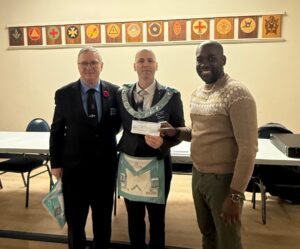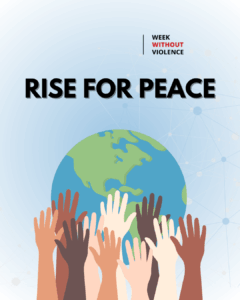As we enter June, we are reminded of the rich tapestry of history, culture, and contributions of Indigenous peoples across Canada. Indigenous History Month is a time to reflect, learn, and celebrate the resilience and diversity of First Nations, Métis, and Inuit communities. At YWCA Edmonton, we are committed to fostering understanding and reconciliation, and this month provides a unique opportunity to deepen our connection with Indigenous heritage.
A Rich Heritage and Indigenous Beginnings in Edmonton
The land on which Edmonton stands has been a meeting place for thousands of years, long before the city was established. This area is part of Treaty 6 territory, the traditional lands of the Nehiyawak (Cree), Tsuut’ina, Niitsitapi (Blackfoot), Métis, Nakota Sioux, Haudenosaunee (Iroquois), Dene Suliné, Anishinaabe (Ojibway/Saulteaux), and the Inuk (Inuit). The North Saskatchewan River, known as kisiskâciwanisîpiy in Nehiyawewin (Cree), meaning “swift flowing river,” has been a crucial artery for trade, travel, and cultural exchange among Indigenous communities.
Treaty 6 and Its Significance
Edmonton lies in Treaty 6 territory, a traditional gathering place, traveling route, and home for many Indigenous Peoples. Treaty 6 was first signed in 1876 at Fort Carlton and Fort Pitt in Saskatchewan between the Nehiyawak, Dene Suliné, Nakota Sioux, and the Crown. Later, many other Nations signed adhesions to the treaty to provide for their communities. Today, Treaty 6 encompasses 17 First Nations. The treaties are often surrounded by misconceptions, particularly concerning the concepts of sharing the land versus land cessation. Recognizing Treaty 6 is essential in acknowledging the enduring relationship and responsibilities shared between Indigenous communities and the Crown. The City of Edmonton commemorates Treaty 6 Recognition Day every August 23rd to honor this historic agreement.
Amiskwaciy-Wâskahikan: The Beaver Hills House
Amiskwaciy-wâskahikan, the Nehiyawewin (Cree) name for Edmonton, means “Beaver Hill House.” Historically, the Beaver Hills region, known as amiskwaciy, was vital for the Tsuut’ina (Sarcee), Nehiyawak (Cree), Anishnaabe (Saulteaux), Nakota Sioux, and Niitsitapi (Blackfoot). The dense forests, open plains, and lakes offered abundant resources for hunting, gathering, and fishing, making it an essential place for rest and replenishment during long voyages. Archaeological evidence reveals over 200 Indigenous campsites and tool-making sites in the region, dating back over 8,000 years.
The North Saskatchewan River: Kisiskâciwanisîpiy
Kisiskâciwanisîpiy, or the North Saskatchewan River, has been a lifeline for many Indigenous nations, including the Nehiyawak (Cree), Tsuut’ina, Anishnaabe (Ojibway/Saulteaux), Nakota Sioux, Niitsitapi (Blackfoot), and Métis. The river valley was crucial for harvesting food and medicine, fishing, and crafting tools. Indigenous peoples have lived along the river for thousands of years, using it as a primary mode of transportation, connecting the Edmonton region to Lake Winnipeg and the Hudson’s Bay area, especially during the fur trade era.
Métis Region 4
Edmonton is part of Métis Nation of Alberta’s Region 4. The Métis Nation of Alberta (MNA) represents all Métis in Alberta and works to advance the socioeconomic and cultural well-being of its citizens. Region 4 is one of six regions across the province, each with its own regional office and specific responsibilities. The provincial office of the MNA is located in Edmonton, reflecting the city’s significant role in supporting Métis identity and heritage.
Resilience and Reconciliation
Indigenous History Month is also a time to acknowledge the painful history of colonization and its lasting impacts on Indigenous communities. The legacy of residential schools, the Sixties Scoop, and ongoing systemic injustices are wounds that require collective healing.
At YWCA Edmonton, we stand in solidarity with Indigenous communities and are committed to the principles of truth and reconciliation. We recognize the unique challenges faced by Indigenous women, girls, and gender-diverse individuals and are committed to providing services that are culturally safe and responsive to their needs.
How You Can Get Involved
- Learn: Educate yourself about Indigenous histories and cultures. There are many online resources, books, and documentaries that provide insights into Indigenous experiences and perspectives.
- Support: Support Indigenous-led organizations and businesses. Consider donating to causes that benefit Indigenous communities.
- Engage: Participate in local events celebrating Indigenous History Month. Engage in conversations about reconciliation and how we can collectively contribute to this important process.
At YWCA Edmonton, we believe in the power of community. This Indigenous History Month, join us as we celebrate the resilience, culture, and contributions of Indigenous peoples.


